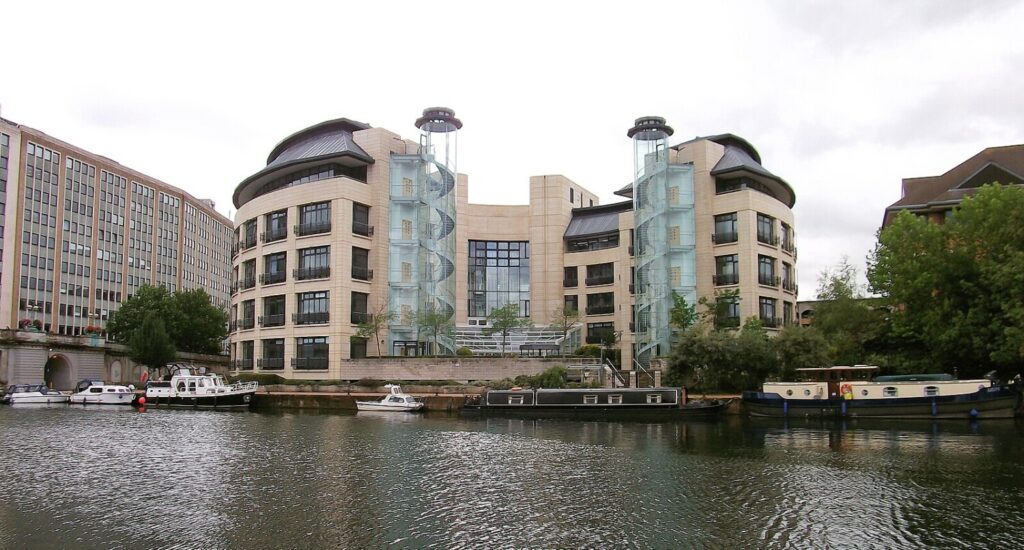Françafrique: Alive and Well in Franco-Chadian Relations
Following the death of Idriss Déby, on 20 April 2021 at the hands of Front pour l’alternance et le concorde au Tchad rebels, Emmanuel Macron rushed to N’Djamena to offer condolences to the people of Chad. Macron gave an emotive speech, declaring that “we will not let anybody put into question or threaten today or tomorrow Chad’s stability and territorial integrity” (BBC News 2021). What appears, prima facie, to be a simple gesture of mourning from one ally to another unravels as coloniality in contemporary international politics when one considers the relationship between France and Chad through the lens of françafrique.
Françafrique
As a term, françafrique dates only to the mid-1990s thanks to its introduction by François-Xavier Verschave. The term has its roots in a speech made by Félix Houphouët-Boigny in 1955 that used the expression ‘France-Afrique’ to outline his desire for Côte d’Ivoire maintaining “close and amicable ties” with the colonial power (Bovcon 2011: 5). Françafrique, introduced by Verschave, argues that the nature of the relationships France holds with its Sub-Saharan African former colonies is neo-colonial and represent “highly personalised networks [that] underpin relations, which guarantee access to natural resources and markets in Africa for French interests” (Taylor 2019: 1065). Crucially, françafrique allows France to maintain a sphere of influence—or pré carré (backyard)—in Africa that permits it to carry out “clientelistic [sic.] and corrupt activities “which reinforce the political and economic control of a colonial relationship (Bovcon 2011: 6-7).
The Significance of Chad to France
Since independence, Chad has remained a vital outpost for French interests overseas. In the 1960s and 1970s, France offered military support to the Chadian government to keep the Front de libération nationale du Tchad at bay and in 1982 offered support to Hissène Habré, having consulted with the United States to find the best solution to keeping Muammar Gaddafi’s Libya in check (Chafer 2019). The military support offered by François Mitterrand established a French military presence in N’Djamena that endures to this day. Using Chad as a pawn for French interests in Africa shows a level of contempt within historical French foreign policy for the citizens of Chad, who suffered crimes against humanity at the hands of Habré.
With the Cold War winding down, Mitterrand decided that the flagrant human rights abuses committed by Habré were no longer a necessary discomfort for maintaining influence in central Africa. Therefore, in 1990 when Déby attempted to overthrow Habré, France did not intervene. Déby followed Habré’s presidential manual of ruling with an iron fist in the knowledge that a stable president was more important to France than a democratic Chad (Chafer 2019; Powell 2017: 60).
Turning, then, to why successive French presidents have placed so much importance on relations and presidencies in Chad. Economically, Chad is of minor significance to France. In 2019, France exported only $95.3m of goods to Chad out of a total of $558bn, making up just a 0.017% of France’s entire export market making it apparent that the economic benefits for France are more complex than direct contributions to GDP (OEC 2019).
Of far greater economic importance to France than the sum of its exports to Chad has been the CFA franc (originally the franc des colonies françaises d’Afrique). The CFA franc was established in 1945 as a common currency for western and central African French colonies. The intention, according to France, was to “protect the colonies from inflation arising from the devalued French franc” after the Second World War (Mitchell 2020: xi).
After the decolonisation of the 1950s and 1960s many nations continued to use this currency that was tied to the French franc, and now the euro. Despite decolonisation, France was the only colonial power to keep its colonial currency mechanism in place for newly independent nations (Pigeaud and Samba Sylla 2020: 16). The CFA franc would be fixed to the French franc, where 1 French franc would be worth 50 CFA francs. The power to change the rate between the two currencies laid firmly with the French Treasury and in 1994, following a sharp devaluation of the CFA franc, France unilaterally lowered the value of the CFA franc by half to the dismay of many African leaders (Taylor 2019: 1068). Thus, the economic value of the relationship between France and its central and western African former colonies is of lesser importance to Paris than the economic control it has continued to hold in a supposedly post-colonial space. The ‘monetary paternalism’ at play throughout the CFA has encouraged “inertia and underdevelopment” because if the two CFA subregions grew too large the currency would be too large to manage remotely in Paris (Taylor 2019: 1069; Tinel 201: 7).
The relationship is not a zero-sum game, however. France is deeply reliant on Chad so that it can continue to possess a large military base in central Africa. France’s regional counter-terrorism operation, L’opération Barkhane, and the Multinational Joint Task Force are based in N’Djamena. Déby was able to seize upon the desires of France—namely to maintain its status as a leading power with significance in Africa—to consolidate power (Powell 2017: 54). In 2006 and 2008, Sudanese-backed rebel groups came close to taking the Chadian capital and it was only with French intelligence and the French military securing the airport that Déby was able to cling onto power. Such French military activism secured the position of Déby and gave him tacit approval to arrest and ‘disappear’ political opposition (ibid: 60).
Conclusion
The French policy of being the self-appointed guardian of Francophone African nations like Chad has resulted only in the consolidation of power in Paris and amongst ruling elites. France has continued its colonial practice of economic control through the mechanisms of françafrique, like the CFA franc. The dedication Macron made to the people of Chad at Déby’s funeral of unconditional support emphasises the policy to continue to practice economic control and support ‘stable’ leaders at the expense of democratic independence.
Bibliography
BBC News. (2021, April 24). Idriss Déby: Thousands attend funeral of Chad president. Retrieved April 26, 2021, from BBC News: https://www.bbc.co.uk/news/world-africa-56857563
Bovcon, M. (2011). Françafrique and regime theory. European Journal of International Relations, 19(1), 5-26.
Chafer, T. (2019, September 9). Chad: France’s Role and Political Instability. Retrieved May 7, 2021, from Italian Institute for International Political Studies: https://www.ispionline.it/en/pubblicazione/chad-frances-role-and-political-instability-23842
Mitchell, W. F. (2020). Foreword. In F. Pigeaud, & N. Samba Sylla, Africa’s Last Colonial Currency: The CFA Franc Story (pp. vi-xi). London: Pluto Press.
OEC. (2019). France. Retrieved May 7, 2021, from OEC: https://oec.world/en/profile/country/fra
Pigeaud, F., & Samba Sylla, N. (2020). Africa’s Last Colonial Currency: The CFA Franc Story. London: Pluto Press.
Powell, N. K. (2017). Battling Instability? The Recurring Logic of French Military Interventions in Africa. African Security, 10(1), 47-72.
Schwab, P. (2004). Designing West Africa: Prelude to 21st-Century Calamity. New York: Palgrave Macmillan.
Taylor, I. (2019). France à fric: the CFA zone in Africa and neocolonialism. Third World Quarterly, 40(6), 1064-1088.
Tinel, B. (2016). Le Fonctionnement des Comptes D’opérations et leur rôle dans les Relations Entre la France et les Pays Africains. Paris: Centre d’Economie de la Sorbonne. (French source)



